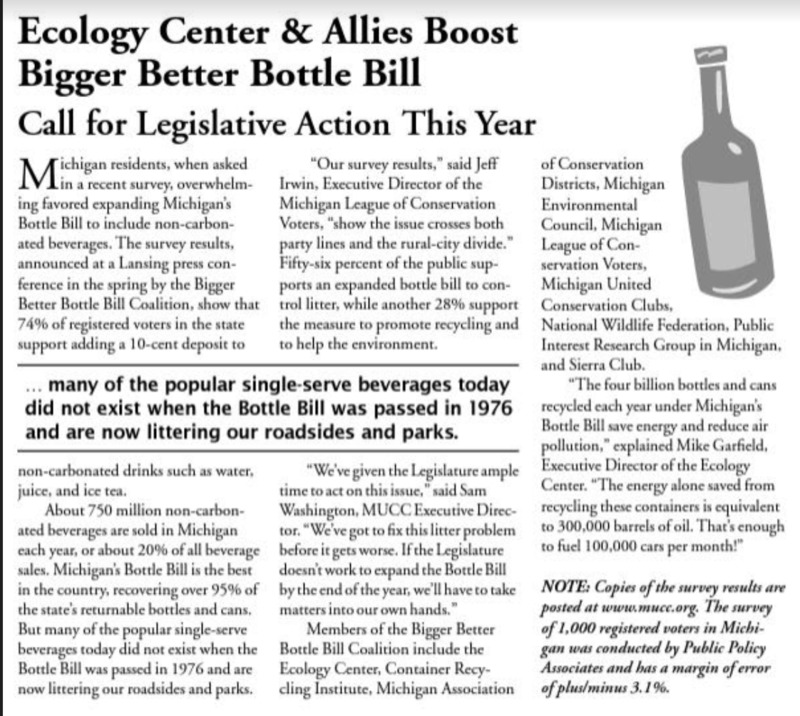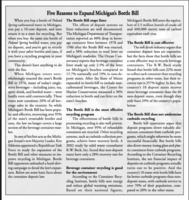A Bigger, Better Bottle Bill
In 2003, the Ecology Center joined a coalition advocating to expand the Bottle Bill passed in 1976. This original bill, known as the Bottle Bill but officially the Michigan Beverage Container Act, sought to reduce litter and distribute funds to organizations helping to clean up the environment by putting a 10-cent deposit per bottle on single-use carbonated beverage containers. The bill requires reporting of containers sold and redeemed by bottlers and distributors. 25 percent of unredeemed deposits in Michigan go to retailers, while the other 75 percent go to the Cleanup and Redevelopment Trust Fund, which redistributes funds to cleanup and education programs.
The original bill was drafted in a time when drinks like juice, tea, and energy drinks - all non-carbonated - were rarely, if ever, bottled for single-use consumption. The coalition advocating for a Bigger Better Bottle Bill believed that the restriction to mainly carbonated beverages limited the scope of the program, calling for the collection and deposits to keep up with the times. This proposal was widely popular, with 74 percent of people responding supporting the expansion of a 10-cent deposit to non-carbonated drinks. Despite the massively popular support, the initiative was ultimately unsuccessful. Still, both Governors Rick Snyder and Gretchen Whitmer expressed their support of recycling programs, including Governor Whitmer’s executive order on September 17, 2019 to “redouble” recycling efforts. The order included a review process of current recycling programs and a more streamlined reporting system. While the Bigger Better Bottle Bill did not ultimately pass in 2003, this declared recommitment to recycling efforts provides hope that, with a push from advocacy groups like the Ecology Center, Michigan residents might be able to redeem deposits on bottles for increasingly popular non-carbonated beverages.


